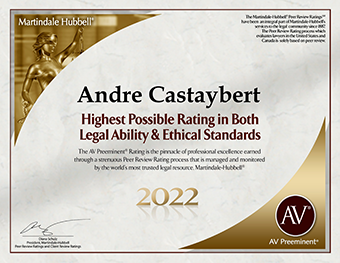What is the Difference Between Trademark Infringement and Unfair Competition?
Unfair competition is the same as trademark infringement except without the requirement of the existence of an enforceable trademark. Seriously, unfair competition is the creation of a false impression as to the source, origin, sponsorship or endorsement of products or services without the use of a trademark. There is a federal version of unfair competition embodied in section 43(a) of the Lanham Act, which prohibits the use, with goods or services, of a false designation of origin or a false or misleading description or representation of fact. A claim of unfair competition may arise from the same facts as a claim for trademark infringement if a trademark is used in a way which creates a false designation of origin or a false or misleading description or representation of fact.
New York, like many states, has a body of legislation aimed at “deceptive business practices.” Often, causes of action for unfair competition under state common law are accompanied by such claims. This “amorphous” cause of action may be used for claims sounding in false designation of origin, false advertising, etc., and has a six-year statue of limitations compared with the three-year period available for claims for common law unfair competition.









